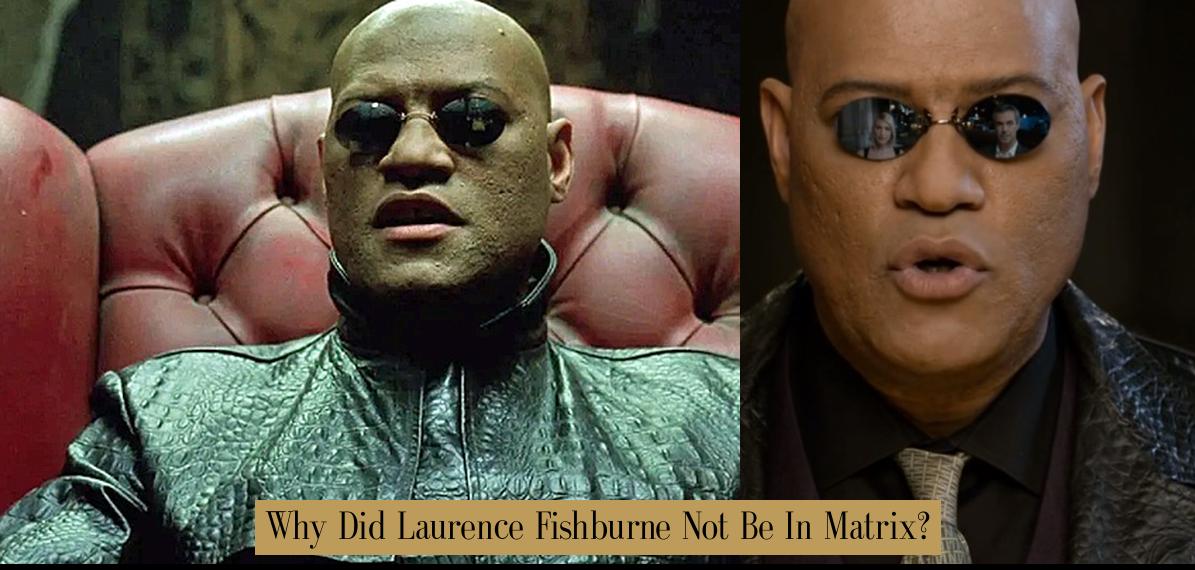Why Did Laurence Fishburne Not Be in The Matrix Resurrections? The Curious Case of Morpheus’s Absence
Remember Morpheus, the wise and enigmatic leader of the rebellion in the Matrix? The guy who dropped those iconic red and blue pills, forever changing Neo’s (and our) perception of reality? Well, hold onto your virtual reality goggles, because that Morpheus, played by the legendary Laurence Fishburne, was conspicuously absent in the latest Matrix installment, The Matrix Resurrections.
Now, the internet is a hotbed of conspiracy theories, ranging from the mundane to the downright bizarre. So, you can be sure that the question of Morpheus’s absence sparked a plethora of speculation. Some theories were as crazy as trying to follow a white rabbit down a digital hole, while others were more grounded in logic. But let’s tackle this question head-on, like Neo facing down Agent Smith, and see if we can unravel the truth behind Morpheus’s mysterious absence.
The Official Explanation: A “New” Morpheus Emerges
The official explanation thrown at us by the Wachowskis, the brilliant minds behind the Matrix, is that the “new” Morpheus, played by Yahya Abdul-Mateen II, isn’t actually the original Morpheus. In the movie’s convoluted narrative, this “new” Morpheus is a program created by Neo’s subconscious, a bizarre amalgamation of Neo’s suppressed memories of Agent Smith and the original Morpheus.
Think of it as a digital Frankenstein’s monster stitched together from Neo’s mental leftovers. It’s a concept that’s about as clear as trying to understand the rules of the Matrix itself. But hey, who needs logic when you have mind-bending action sequences and enough bullet-dodging to make you dizzy, right?
Fishburne’s Side of the Story: “I Wasn’t Invited”
Now, here’s where things get interesting. Laurence Fishburne, in a move that’s as bold as jumping off a building to dodge Agent Smith, openly stated that he wasn’t asked to reprise his role. He simply wasn’t invited to the virtual reality party.
In an interview with New York Magazine, Fishburne said, “I have not been invited. Maybe that will make me write another play. I wish them well.” His blunt and matter-of-fact response leaves little room for interpretation.
The “Missing” Morpheus: A Plot Twist or a Missed Opportunity?
So, what do we make of all this? Was it a deliberate narrative choice by the Wachowskis to introduce a new Morpheus? Or was it a case of, shall we say, “creative differences” between the filmmakers and the veteran actor?
Some speculate that the decision to recast Morpheus was a way to inject fresh energy into the franchise. After all, the original trilogy was released over two decades ago, and times have changed. But others argue that the absence of Laurence Fishburne, the embodiment of the original Morpheus, felt like a betrayal of the Matrix’s legacy.
The Legacy of Morpheus: A Complex Figure in the Matrix Universe
Morpheus, in the original trilogy, was more than just a leader. He was a mentor, a sage, a symbol of hope in a world of digital deception. He was the one who opened Neo’s eyes to the truth of the Matrix, who challenged him to embrace his destiny.
Laurence Fishburne imbued Morpheus with an undeniable gravitas, a presence that commanded respect and inspired awe. He was the embodiment of the struggle against the machines, the champion of human freedom.
The Matrix Resurrections: A Reboot or a Rehash?
Now, let’s talk about The Matrix Resurrections. The movie was filled with nostalgia, callbacks to the original trilogy, and plenty of action. But did it truly capture the essence of the Matrix, the philosophical depth, the exploration of free will and destiny?
The answer, like the Matrix itself, is a bit blurry. Some fans embraced the new direction, while others felt it was a pale imitation of the original. The absence of Laurence Fishburne, for many, served as a stark reminder that the Matrix, like the world itself, is in a constant state of flux.
The Bottom Line: A Matter of Perspective
Ultimately, the reason behind Laurence Fishburne’s absence in The Matrix Resurrections remains a subject of debate. Was it a deliberate artistic choice by the Wachowskis, a reflection of shifting creative dynamics, or a simple matter of not being invited?
Whatever the reason, the absence of the original Morpheus left a void that was difficult to fill. It’s a reminder that even in the world of the Matrix, where reality itself is malleable, some things are simply irreplaceable.
So, next time you’re watching The Matrix Resurrections and you see the “new” Morpheus, take a moment to think about the original. Think about Laurence Fishburne, the actor who brought Morpheus to life, the embodiment of a timeless struggle for freedom and truth. And remember, in the Matrix, as in life, sometimes the most impactful moments are those that are absent.
